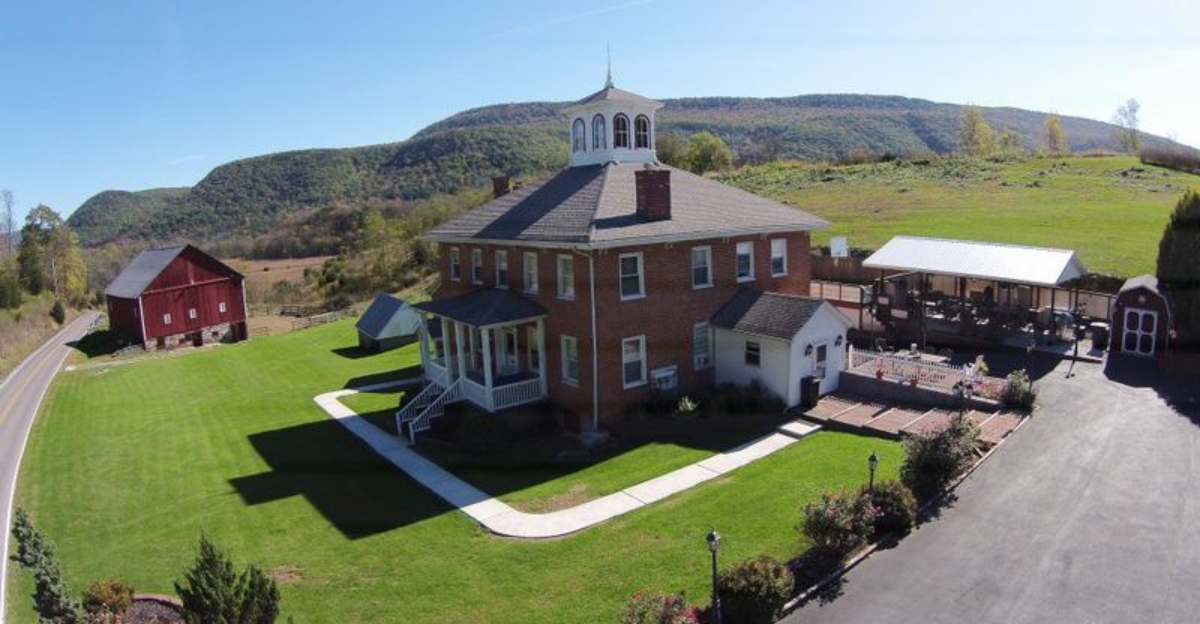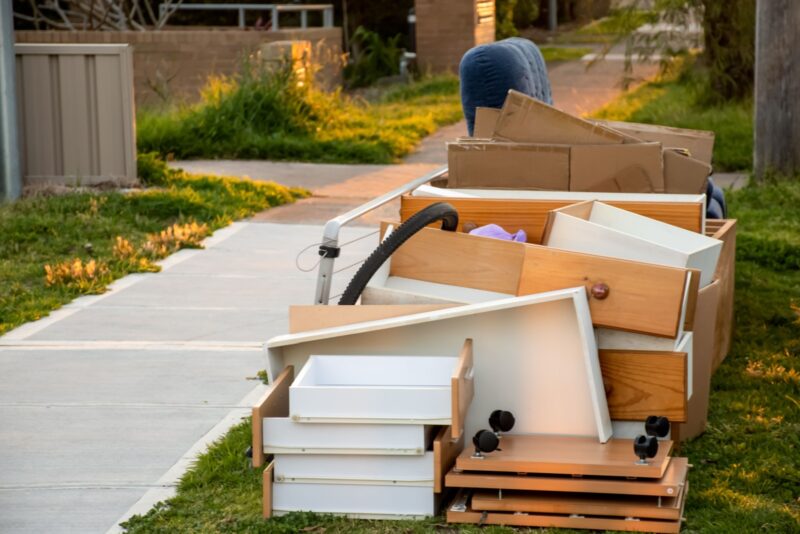Pennsylvania Homes Most Vulnerable To Value Drops By 2026

Pennsylvania real estate might seem stable, but some homes are sitting on shaky ground. Economic shifts, aging infrastructure, and changing buyer preferences are creating trouble spots across the state.
If you own property in certain areas, you could see your home’s value drop by 2026. I’m breaking down the riskiest types of homes so you can protect your investment.
1. Homes Near Abandoned Steel Mills
Old steel mill neighborhoods carry heavy baggage that buyers notice immediately. Contaminated soil and groundwater from decades of industrial use make these areas less attractive every year. Environmental cleanup costs often fall on taxpayers, draining local budgets.
Property values struggle when potential buyers research the area’s industrial past. Banks hesitate to approve mortgages near former industrial sites due to liability concerns.
Your home might look perfect inside, but location history matters more than fresh paint.
2. Properties In Declining Coal Towns
Coal communities face brutal economic realities as mines shut down permanently. When the main employer disappears, entire towns lose their economic foundation quickly. Young families move away for jobs, leaving behind aging populations and empty houses.
Schools close, businesses board up windows, and property taxes rise to cover budget gaps. Your home’s value depends heavily on community vitality and job opportunities nearby.
Without economic diversification, these towns continue sliding downward despite affordable housing prices.
3. Houses With Outdated Electrical Systems
Knob-and-tube wiring scares modern buyers more than any other home feature. Insurance companies either refuse coverage or charge astronomical premiums for homes with outdated electrical. Rewiring an entire house costs thousands, and buyers simply subtract that from their offers.
Home inspectors flag electrical issues immediately, killing deals before they start. Modern appliances and electronics require updated electrical capacity that old systems can’t handle.
Sellers often discover their outdated wiring reduces home value by 10-20% instantly.
4. Flood-Prone Properties Along Rivers
Climate change makes riverfront living riskier with each passing year. Flood insurance premiums have skyrocketed, adding hundreds monthly to homeownership costs. Buyers check FEMA flood maps before even scheduling viewings nowadays.
One major flood event can permanently stain a property’s history and marketability. Basements that flood regularly become useless storage spaces that smell musty year-round.
Even homes slightly elevated face value drops simply from being in designated flood zones.
5. Properties With Failing Septic Systems
Septic system failure creates nightmare scenarios that buyers want to avoid completely. Replacing a septic system costs $10,000-$30,000, money most buyers don’t have after down payments. Inspectors test septic systems thoroughly, and any red flags torpedo sale negotiations fast.
Older systems installed 30-40 years ago approach their expiration dates simultaneously across Pennsylvania. Soil conditions affect system longevity, making some properties more vulnerable than others. Sellers often face demands for credits or replacements before closing deals.
6. Homes Near Fracking Operations
Fracking brought economic booms but created long-term property value questions. Water contamination fears persist despite industry assurances about safety measures. Truck traffic, noise pollution, and industrial activity make neighborhoods less desirable for families.
Studies linking fracking to property value declines continue emerging from universities nationwide. Buyers research fracking locations extensively before making offers on Pennsylvania properties.
When the drilling stops, communities face uncertain futures without addressing environmental concerns that remain.
7. Properties With Asbestos And Lead Paint
Homes built before 1980 often hide toxic materials that require professional removal. Lead paint and asbestos abatement costs tens of thousands, frightening budget-conscious buyers away. Disclosure laws require sellers to reveal known hazards, limiting negotiation options.
Families with young children avoid lead paint homes entirely due to health risks. Asbestos in insulation, siding, and floor tiles creates expensive removal requirements before renovations.
Even cosmetically beautiful older homes face value drops when inspections reveal these hidden dangers.
8. Rural Homes Without Broadband Access
Remote work transformed internet access from luxury to absolute necessity. Families won’t consider homes where kids can’t attend virtual school or parents can’t work remotely. Satellite internet remains expensive and unreliable compared to fiber or cable connections.
Rural properties without broadband sell for significantly less than comparable connected homes. Upgrading infrastructure requires thousands in personal investment with no guarantee of service.
Younger buyers especially eliminate no-internet properties from searches immediately, shrinking your buyer pool dramatically.
9. Houses In Shrinking School Districts
School quality drives home values more powerfully than almost any other factor. Districts losing enrollment face budget cuts, program eliminations, and facility closures rapidly. Parents research school ratings obsessively before choosing neighborhoods, eliminating weak districts immediately.
Declining enrollment signals broader community problems that concern all buyers, not just families. Property taxes often rise in struggling districts, creating a painful double hit.
Your home competes against properties in thriving districts with better facilities and programs.
10. Properties With Foundation Issues
Foundation problems terrify buyers because repairs cost astronomical amounts and offer no guarantees. Cracks spreading across the basement walls signal potential catastrophic failure down the road. Structural engineers charge thousands just for assessments before repair quotes even arrive.
Banks refuse mortgages on homes with significant foundation issues, eliminating most buyers instantly. Even minor cracks make buyers nervous and demand huge price reductions.
Foundation repairs disrupt lives for months and sometimes fail to solve underlying problems permanently.
11. Homes In High Property Tax Areas
Property taxes vary wildly across Pennsylvania, creating winners and losers in the housing market. High-tax municipalities struggle to attract buyers when neighboring towns offer similar homes for less. Monthly mortgage payments become unaffordable when property taxes add $500-$800 extra.
Retirees on fixed incomes flee high-tax areas, reducing demand for homes significantly. Local governments trapped in debt cycles keep raising taxes, pushing more residents away.
Your home’s sticker price matters less than total monthly costs, including oppressive property taxes.
12. Properties With Oil Tank Removals Needed
Buried oil tanks lurk beneath yards like ticking time bombs waiting to explode. Leaking tanks contaminate soil and groundwater, creating six-figure cleanup bills for unlucky homeowners. Banks and insurance companies demand tank removal before approving mortgages or coverage.
Removal costs $2,000-$5,000, but contamination cleanup reaches $50,000 or more if leaks occurred. Home inspectors use metal detectors to find buried tanks that sellers forgot existed.
Discovery of an old oil tank can derail sales completely or force massive price concessions.






